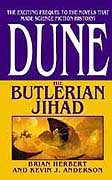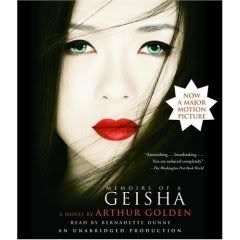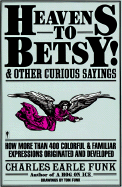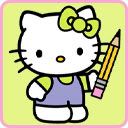#15 - The Butlerian Jihad by Brian Herbert and Kevin Anderson

The Butlerian Jihad is the first book in a prequel trilogy to the Dune series. Brian Herbert is the son of Frank Herbert who wrote the original Dune novels.
After hearing good and bad reviews of the Dune novels written by Brian Herbert, I decided to start at the beginning of the Dune series and read through the entire series again to see what I thought about the additions that have been made since Frank Herbert's death.
Many die-hard fans of Dune have complained that Brian Herbert's writing style and story lines are fundamentally different than his father's. But then again, die-hard Sci-Fi fans sometimes get too hung up on over-analyzing everything. Look at the uproar caused by the Star Wars prequel movies....oh my....they are just MOVIES (albeit bad movies...lol)....in the long run, it really doesn't matter. Same here.
I'm not reading Brian Herbert's books looking for differences between him and his father. I'm reading the books with the mind-set that I'm interested in the story line, and glad to see the Dune series continuing.
I really enjoyed this book! Some Dune readers touted it as too simplistic and not nearly as complex as the original Dune series. So far I disagree. I enjoyed the first book -- and have just started the 2nd of the prequel trilogy. The story line was excellent, and the book well-written. Brian Herbert has thousands of pages of his father's notes and story-line ideas, and I am sure that he has written his books with his father's vision in mind.
Anytime someone continues or adds to a well-known book series there are going to be people who say "But it's not the same....''
Where is it written in stone that it has to be the same???
The prequel series is dated 10,000 years before the events that occur in Dune. I'm enjoying being able to read about events that are only hinted at in the original series. The human race has been enslaved by sentient robots, including cymeks that have robotic bodies and human brains. The prequel tells the story of the rebellion and the human fight to regain freedom and destroy the Evermind, the central controlling force of the robot domination.
Sometimes you just have to give new ideas a chance.
1 book down.....12 to go. LOL. This is one project that's going to take me awhile.... :)

 I enjoyed this book. It was a lot different than I expected. I enjoyed a look into the history and background of Geisha. I had some pre-conceived notions that Geisha were merely high-paid Japanese prostitutes, but this book shows that they are much different than that.
I enjoyed this book. It was a lot different than I expected. I enjoyed a look into the history and background of Geisha. I had some pre-conceived notions that Geisha were merely high-paid Japanese prostitutes, but this book shows that they are much different than that.



